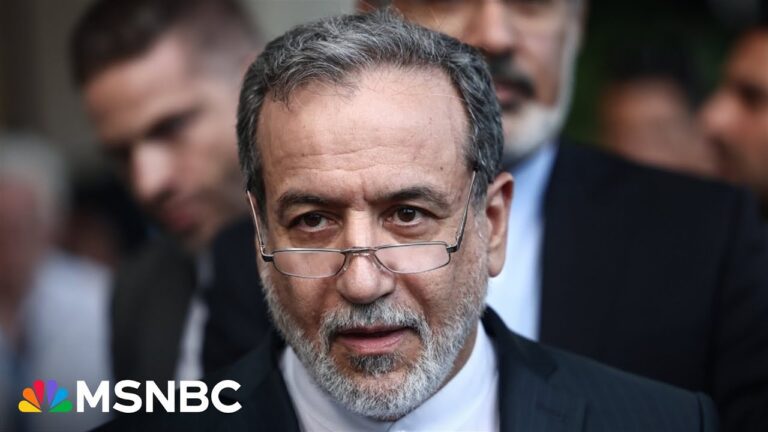Video at the bottom!
The President has urged Congress to finalize the budget bill while international reactions intensify following a recent military strike. Among the responses, UN Secretary-General Antonio Guterres described the attacks as a “dangerous escalation” in an already volatile region, labeling it a direct threat to global peace and security. The UN Security Council is convening an emergency meeting in light of the escalating tensions, with concerns that the conflict could spiral out of control, leading to catastrophic outcomes for civilians and wider implications for the region and the world.
The European Union’s chief diplomat echoed similar sentiments, calling for all parties to de-escalate and return to negotiation, while asserting that Iran must not be allowed to develop nuclear weapons.
NBC News foreign correspondent Hala Gorani, reporting from London, discussed the upcoming meeting between Iran’s Foreign Minister, Abbas Araghchi, and Russian President Vladimir Putin. This meeting is seen as significant, highlighting the long-standing strategic partnership between Iran and Russia. The two nations have collaborated closely, particularly in support of Bashar al-Assad’s regime in Syria, and Iran has even supplied drones to Russia during its conflict in Ukraine.
However, the outcome of the meeting remains uncertain, particularly given Russia’s own ties with Israel. Analysts suggest this meeting could serve as an effort for Iran to project a united front with its powerful ally amid its current vulnerabilities. Iran’s nuclear program has suffered considerable setbacks, and its military leadership has faced significant losses due to recent Israeli attacks.
At this moment, Iran appears to be focused on ensuring the survival of its regime, recognizing that any direct attack on U.S. assets would provoke serious retaliation. Still, experts warn against underestimating Iran’s capacity for strategic patience; while they may currently be regrouping, they could also be positioning themselves for future actions that extend beyond mere preservation of their regime.
The ongoing situation is likely to reshape dynamics in the Middle East, reflecting the potential for far-reaching consequences in the years to come.


